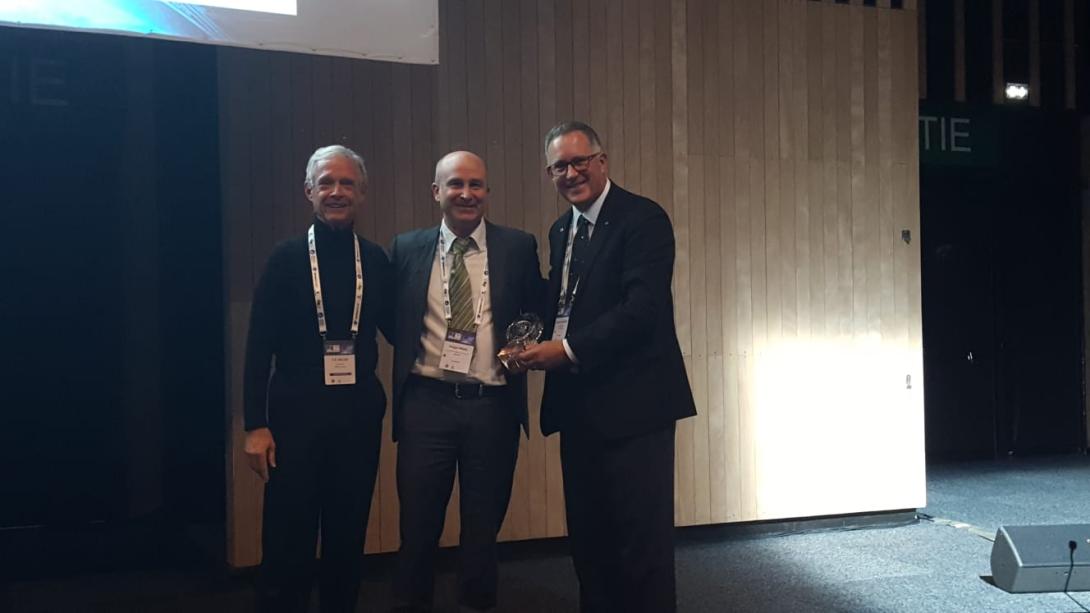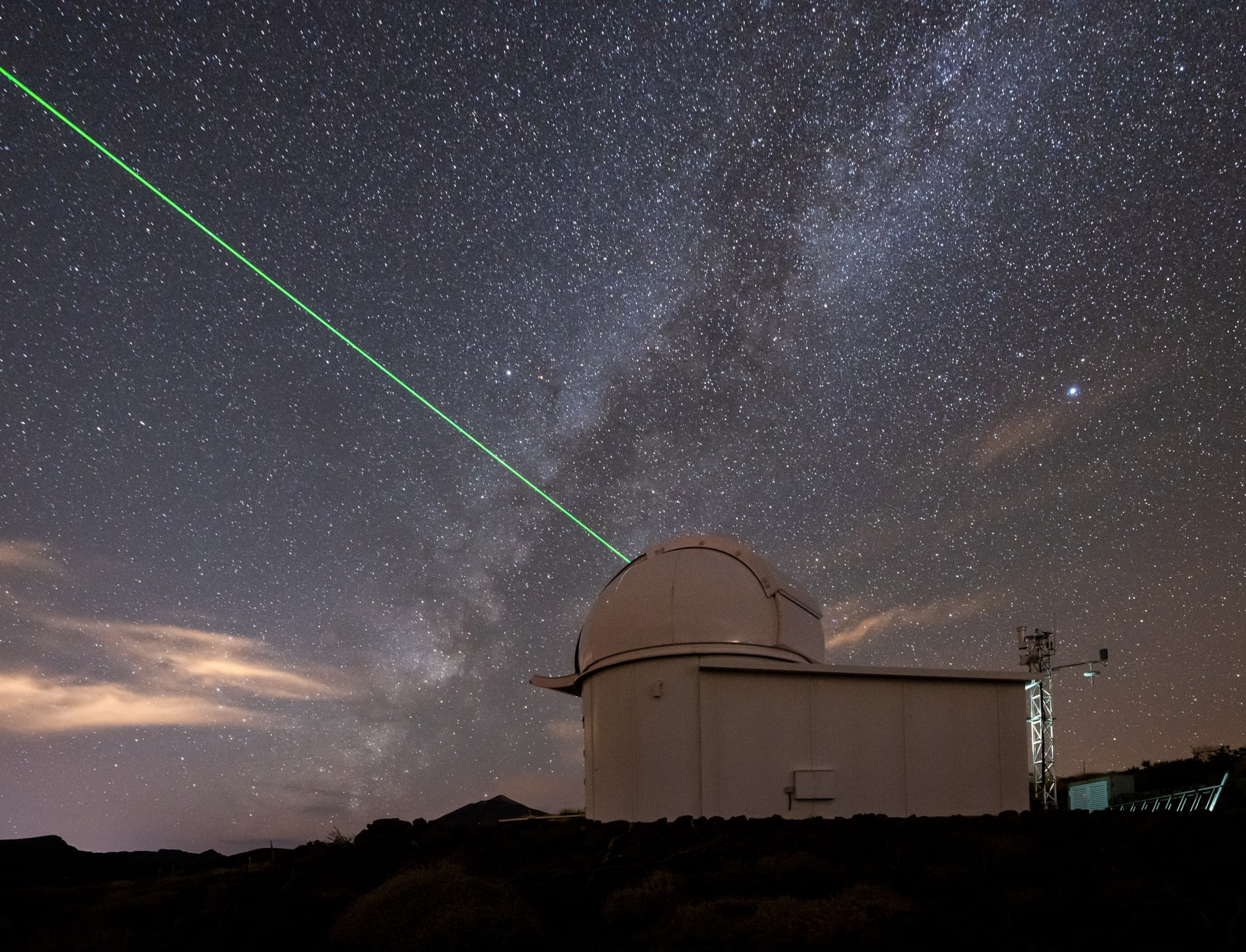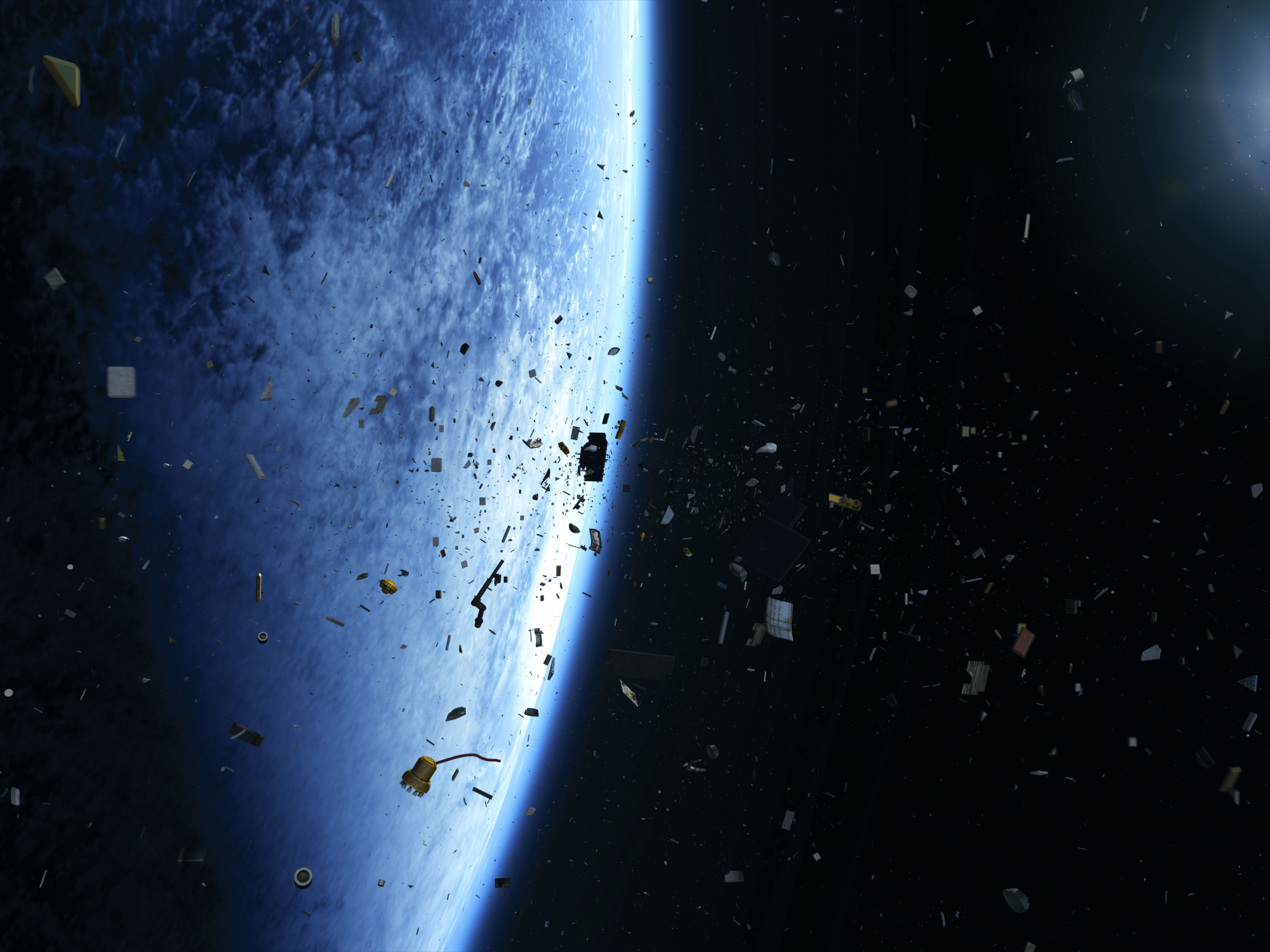ESA's Holger Krag wins Space Data Association T.S Kelso Award for Space Safety
Dr Holger Krag of the European Space Agency (ESA) has been recognised for his outstanding contributions to space flight safety and has been presented with the T.S Kelso award by the Space Data Association (SDA).
Dr Holger Krag has been a Space Debris Analyst in ESA’s Space Debris Office located in Darmstadt, Germany, since 2006. He has worked on establishing risk models and a collision avoidance system as well as contributing to the first space surveillance studies. In 2014, he was appointed Head of the Space Debris Office, which, among others, provides fundamental support to ESA’s then-Space Situational Awareness Programme. In 2019, he took over the position as the head of the programme and led its evolution into the new Space Safety Programme, which was established by ESA in 2019.

The award was presented by SDA Technical Adviser, Dan Oltrogge of COMSPOC, during the IAC 2022 conference on 20th September. Dan Oltrogge commented: “I am pleased to present the T. S. Kelso Award for Space Safety to its second recipient, Dr Holger Krag. His longstanding work and leadership at ESA to monitor, mitigate, and remediate space debris have been crucial in promoting operational flight safety and sustainability, and he is a very worthy recipient.”
Pascal Wauthier, Chairman, the Space Data Association, gave a virtual presentation during the event. He commented: “The T.S. Kelso Award is presented as a recognition of outstanding contributions to space-flight safety and celebrates and acknowledges substantial, innovative, long-term and practical contributions to the advancement of space safety and the preservation of the space environment. We were overwhelmed with the amount worthy entries received for the award this year. It was a tough decision for us all, but we agreed Holger should receive the award due to his enthusiasm and continuous support. His expert knowledge in collision avoidance is greatly appreciated by the SDA.”
On receipt of the award, Dr Holger Krag, said: “I am honoured to receive this award and to be recognised by the SDA for my work. It is extremely important for us to continue to share valuable knowledge, and to enhance and ensure flight safety. The SDA is an extremely valuable entity, helping to keep space safe for all.”
The award was voted for by the SDA Directors and presented during IAC in Paris.
The Space Data Association
The Space Data Association Limited (SDA) is a non-profit international association of satellite operators that supports the controlled, reliable, and efficient sharing of data critical to the safety and integrity of the space environment. The SDA is open to all satellite operators and other participants. Its membership comprises many of the world’s major satellite communications companies, as well as key scientific, remote sensing, and environmental satellite system operators.
The Space Debris Office at ESOC
Since the launch of Sputnik on 4 October 1957, over 6000 launches have placed over 12 000 satellites into orbit.
The Space Debris Office at ESOC keeps an updated list of exactly how many satellites are currently in operation, and how many are no longer functioning. While scientific applications were for a long time the dominant users of satellites, commercial applications have recently surpassed them.
Space debris comprises the ever-increasing amount of inactive space hardware in orbit around the Earth as well as fragments of spacecraft that have broken up, exploded or otherwise become abandoned.
The debris field comprises burnt-out launch vehicle upper stages, dead or inactive spacecraft and other objects ranging in size from as big as an automobile to microscopic dust. To avoid damage to operational satellites, ESA uses a range of tools and information services to track and assess space debris.
The Agency has taken space debris seriously since the 1980s. In 1986, the Director General created a Space Debris Working Group with the mandate to assess the various issues of space debris. The Space Debris Office at ESOC was formed in 2006 and, since 2009, space debris has been included in core ESA programmes, all based primarily at ESOC.


